“The pulse is the anchor. Everything else is fluid.” – In conversation with Rrose
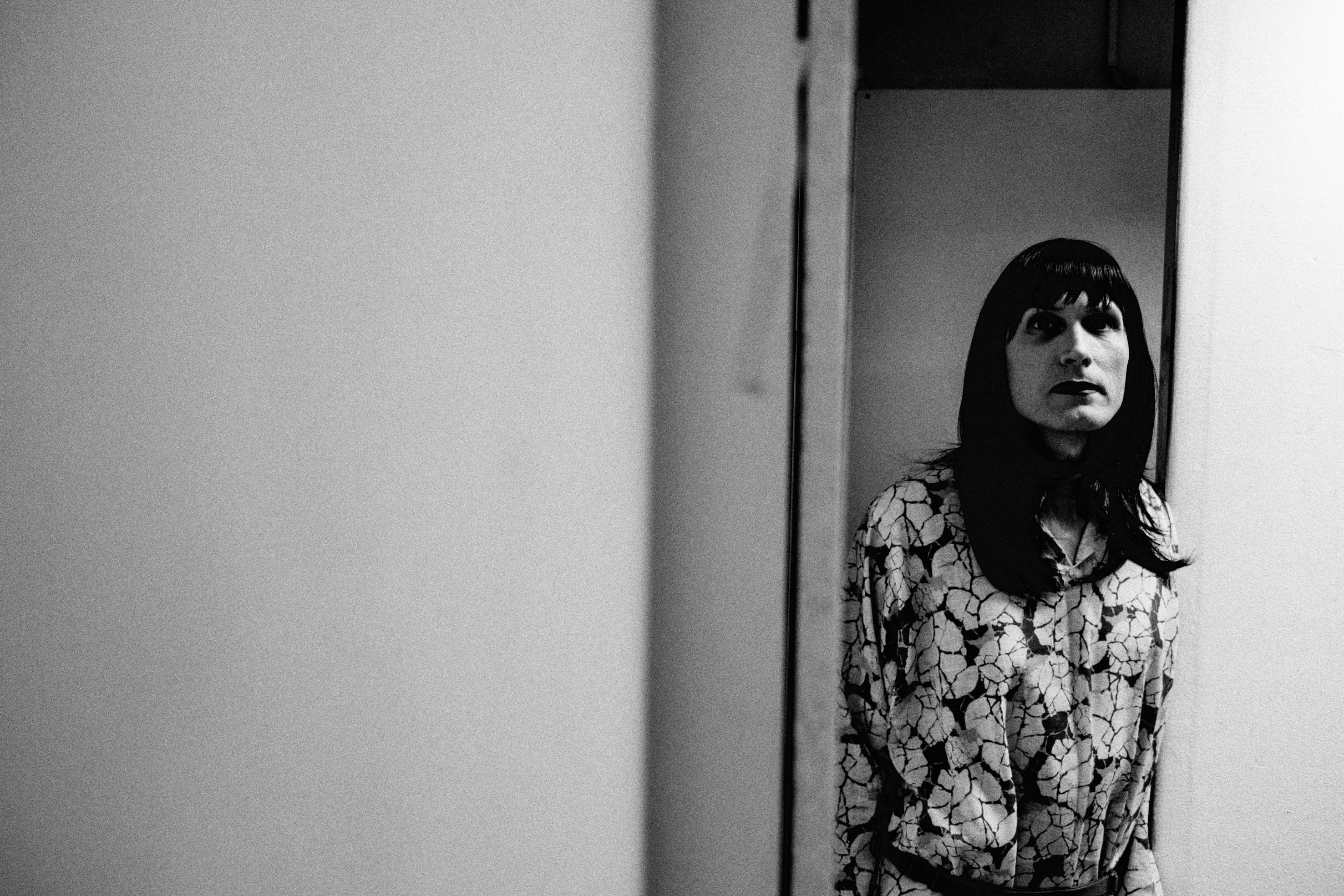
Across a discography that resists easy categorization, Rrose has long pursued a singular aesthetic. As one of the protagonists of minimal techno, Rrose bridges club music, and avant-garde composition methods, enriching their enigmatic tracks with psychoacoustic detail, and ambiguous qualities.
Rrose tells Struma+Iodine founder Shilla Strelka about their studies at renowned Mills College, their fascination with process-based music, the ways how listening itself becomes an act of composition, and the conceptual threads behind the Eaux label. What unfolds is a portrait of an artist who approaches sound not as fixed material, but as a living system – organic, relational, and perpetually in flux. The conversation took place before their show at Das Weisse Haus, hosted by Vienna based label Tender Matter last year.
One of the reasons I’ve approached you is your involvement and interest in both experimental & avant-garde aesthetics and techno music. I’m wondering how difficult it is for you to get rid of this stereotype of the techno producer that is not able to think outside of the box – no matter if it’s true or not. I personally always felt like this genre dives really deep into sound itself, so I don’t really get why techno producers often wouldn’t have a broader range of musical and sonic interests.
Yeah, well I’ve always thought of techno as this very – maybe more than any other genre – a very malleable medium. I guess at least if you’re speaking about rhythmic music, because if you’re talking about experimental music, of course, it can literally be anything. But in the context of rhythmic or dance music – or whatever you want to call it – I feel like techno is the most open-ended.
And not everyone thinks of it that way, because some people think of it in narrow terms and then it must be subdivided into what specific genre of techno. But techno to me, by itself – I’ve thought about this a lot, even thought about writing something about it – to make something function as techno, the only element really is the pulse.
“the heartbeat itself is already techno”
Yes.
And the pulse doesn’t even have to be… it can be something that is perceived and not even actually present. So there are ways to do things around it. All the other genres of dance music need at least one – usually many more – stylistic limitations, I guess, to define them. Whatever they may be. If it’s house, it needs something more to make it feel like house. If it’s drum & bass, of course it’s quite specific – you can go on and on with all the genres. But techno can just be the perception of a pulse. You can still call something techno and people probably won’t argue with you. You can say, “Yeah, it’s techno,” and that makes it basically – on such a primal level – connected to our very existence and to the very nature of sound, which is repetitive vibrations, right?
And our existence, which is based on a beating heart. It’s almost a cliché to connect the heartbeat to dance music, but actually the heartbeat itself is already techno. Whereas you have to add something else to it to make it another genre. But I think the heartbeat itself is literally what techno is. I was thinking about the fact that our bodies actually need the heart to be at a steady rate in order for us to be healthy and stay alive. And then when that varies too much, we have a danger of dying – of malfunction. So when you have a problem with your heart, they put in an electronic device that regulates it and makes it more precise, which I think is kind of interesting and maybe ironic: that our bodies, in some ways, are trying to fit the ideal, which is like a machine.
We have to not vary too much from this mechanical quality. So it’s interesting thinking about that interplay. That’s also what techno is about: this meeting between you and the machine. Right? So from that pulse, I think you can go anywhere. It can be a vehicle for expressing so much. It’s very open-ended.
I’ve read in interviews that you decided to leave techno behind…
Yes. I had a few years where I was really thinking I would leave techno to the side.
Was it after your studies?
Before and during. So it kind of led to that idea. It led me back to studying again. And then it was after the studies that I came back to techno.
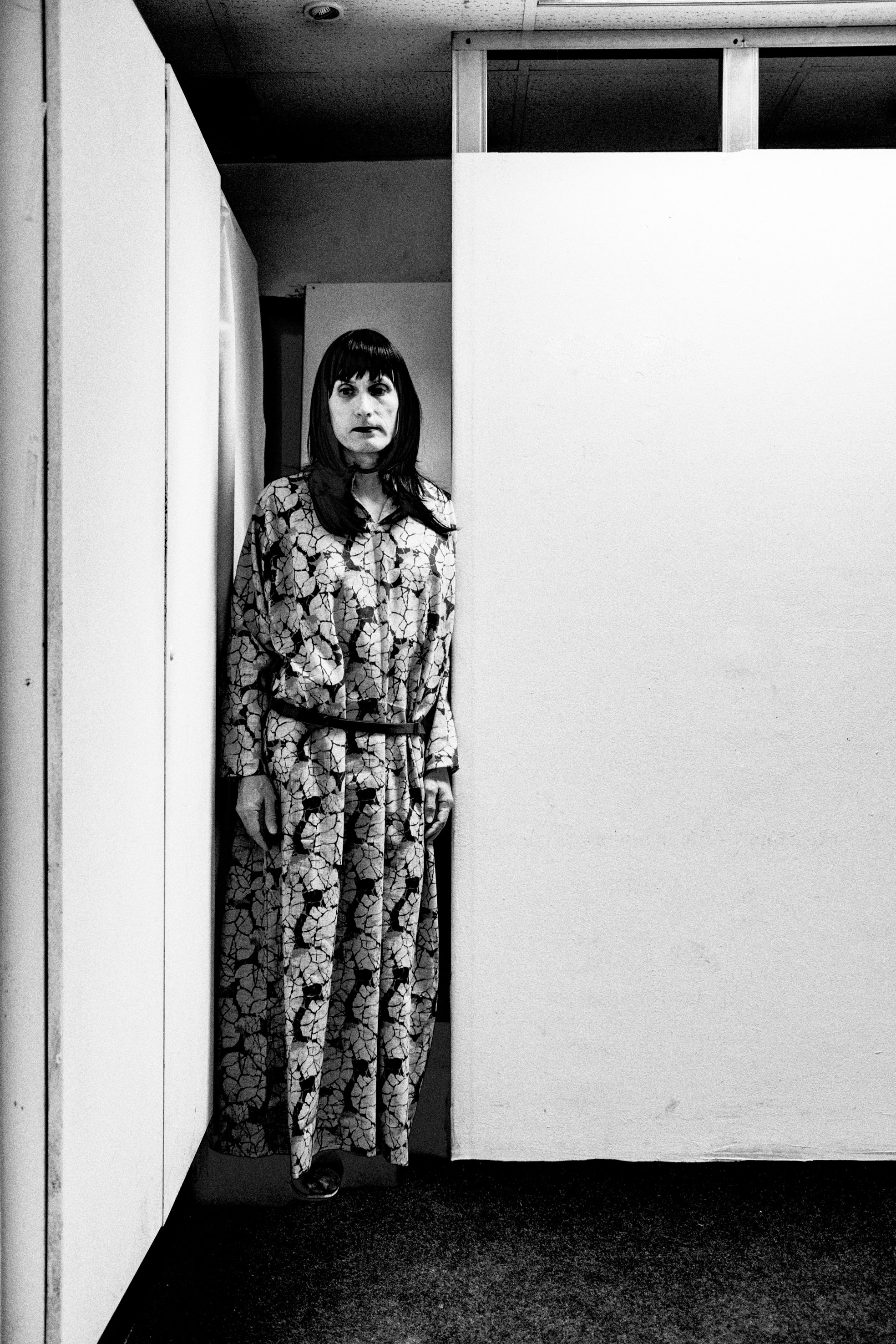
“the confidence to let things unfold”
The fact that you studied at Mills College in California, a college that is renowned for and associated with very influential composers who have studied there, and also the heritage of minimal music… You involve minimalist aesthetics into your techno production and beyond. Was there a strategy or field of interest that you discovered while studying? Because for example, in your recent work you are concerned a lot with drones, microtonalities, or psychoacoustic effects… which all come from an academic background in a way. So I’m wondering, how did the fact that you studied at this university reflect back on your work?
Well, I knew that going into the program, I wanted to dive deeper into all of these composers and works and different movements in music that always interested me as a listener, but I didn’t have the space to engage with so deeply – to really know it inside and out, and devote my attention to it in a concentrated way.
So having two years where I didn’t have distractions from another job or from other music – that was the most important thing. And then being surrounded by so many inspiring musicians and faculty who were also living and breathing all that music, I could just be like a sponge and soak all of it in.
So it was a lot about developing my ear, and developing my patience – and the confidence to be patient – and the confidence to let things unfold.
And all those things you mentioned were things that interested me before I went in. It was just about cultivating and deepening the appreciation for what is a drone, what is process music… That was something that always fascinated me, but I didn’t really have the tools, patience, or confidence to develop work that used purely process-based ideas.
So my thesis project was around this automated piano, and that gave me the chance to do something really focused on just doing process music – and finding my own way into it too, which is a kind of non-technical way of approaching things. The work I did sounds very different from my electronic music as Rrose, but there’s a real link in the way I think and approach things.
It certainly developed my ability to make decisions in the process of music – not from a controlling standpoint, but putting myself in a more subtle role. Instead of thinking, “I’m the composer and this is the music I want to make,” it became, “I’m one element in this whole system.” I feed something into it and then respond. So I don’t take responsibility for everything.
With electronic music especially, there are so many elements and so much unpredictability. It’s not like playing folk songs on an acoustic guitar where it’s very clear you’re choosing a chord and playing it. When you’re working with sound and feedback and overtones and frequencies, you can’t predict every outcome – and that’s a beautiful part of it.
“music that sounds like a bizarre organism”
Why did you name your label Eaux? Thinking about sonic flux and that life is in a constant state of flux.
Well, I think – as you know – I borrow a lot from Marcel Duchamp (starting with the name “Rrose” itself), and so Eaux is another reference. But it’s incorrect in a sense. In French, you would never have the plural with the “x” without an article. So just writing the word by itself doesn’t really make sense from a French perspective.
In a way, I like that it’s misused – It’s partly a reference, but about the idea that we’re always borrowing from each other. Even though I’m trying to come up with music that sounds like a bizarre organism you can’t quite place, I still want to acknowledge that this doesn’t come out of nowhere.
I’m not claiming I’m channeling something purely unique inside my soul that is only mine. It’s a result of everything I’ve been exposed to – all my experiences, everything I’ve learned. Whatever I am, however I sense things – it includes all of that. And I think it’s important to acknowledge that.
There’s the element of the reference point. And then, of course, the imagery of liquid and water is just something that’s an endless metaphor. It always reappears.
One big mystery to me is how sounds can carry transcendental qualities. I think that you manage these really well. As a listener I’m entering this liminal stage… It is connected to a sort of psychedelia, but it’s also something more archaic. And I was thinking – because I was reading about your interest in dissonance and ambivalence – maybe the transcendental feeling actually comes from being able to sit between opposites. Like light and dark, ominous and rigid, alien and human, tactile and fluid… that in-between space. Could that lead to something we perceive as transcendental? I don’t know.
Yeah, I think that’s really well put. And maybe it just has to do with finding a space where we’re forced to question what we’re experiencing. Where we can’t just say: “I know what this is, this makes me feel this way – and I like that or I don’t like that.” Most people want to feel something and be able to identify it – whether it’s sadness, nostalgia, euphoria. People want a clear, familiar experience. And you wouldn’t really call that “transcendent” because it gives you exactly what you’re expecting.
So I think, yeah, as you said – it’s about exploring those in-between states. The ones where you feel a bit uncomfortable because you don’t quite understand what’s happening, but you’re also curious.
I’m not trying to be confrontational and say, “Here’s something disturbing, deal with it.” I’m trying to create a sensual experience that’s full of mystery and curiosity – but still tickles you in some way, makes you feel something unusual, but also interesting. That’s what I’m trying to do for myself with the music – and I hope it does that for other people too.
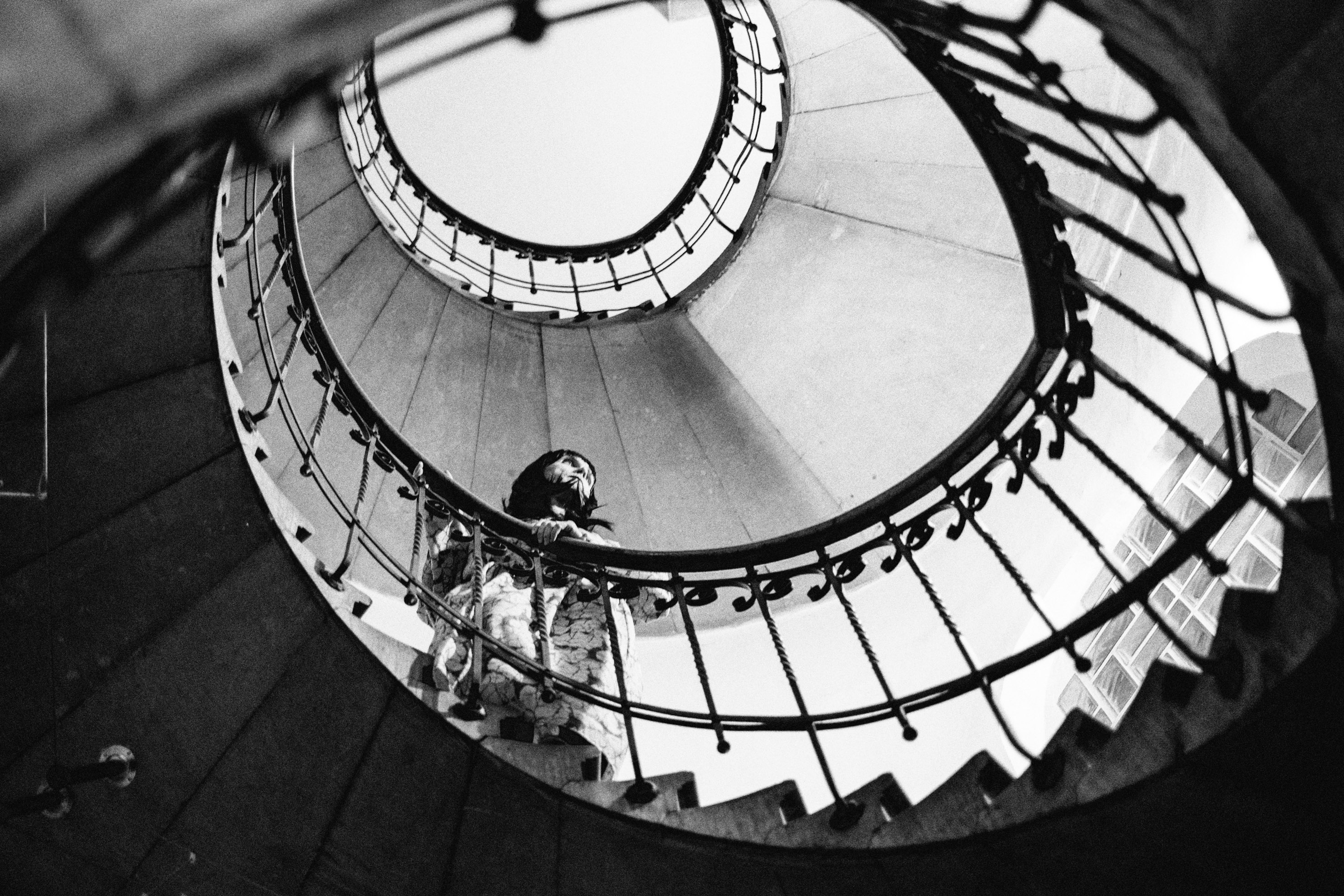
“to create a sensual experience that’s full of mystery and curiosity”
I wanted to ask if you can – because I imagine it’s more intuitive and experimental – but how do you actually reach that kind of aesthetic? It’s not something you can rationally name. Like, there’s no recipe you follow to arrive at that sound. So it must involve your own listening. And this brings me to another question: in your process, how important is listening? Because to me, the subtleness of your sound feels deeply connected to how closely you must be listening. So… how do you listen? Do you have specific practices or habits that shape that?
I’d say the listening part takes up most of my time when making music. Way more than the actual doing part. There’s often long stretches where I’m just listening to something evolve – sometimes for minutes or hours – before making even the smallest change.
Like if I adjust a parameter and it causes a feedback loop or a long decay, I’ll just sit and let it run. Even if it’s five minutes of barely perceptible change, I’ll let it happen. I want to hear where it goes on its own before I touch anything else.
And sometimes something will happen accidentally – like after I’ve stopped working, and there’s some residual process still unfolding – and I’ll just sit there and let it happen. That moment can end up becoming the basis for a piece.
So it’s like being a patient observer as much as a composer. That comes across in the music – you can feel that space, that sense of attention.
I hope so. That’s always the intention.
I noticed that you post a lot of images of nature, of organic structures, microcosmic details – how does that all relate?
Yeah, I mean, I have these different groups of images. The Instagram presence is more about photography, and I tend to gravitate toward natural forms. Then I have my website, where I post images that are more like a collage board – reference points and things from art history, music, commercial media, or ready-made objects.
So I guess most people only see the Instagram, because not a lot of people browse artists’ websites anymore. But for me, those two platforms are meant to work as different types of counterpoints.
I resisted having Instagram for a long time. It was actually Lucy – who I work with in Lotus Eater – who said, “Come on, I’ll show you how it works.” And I said, “Okay, but if I do it, it’ll be for photography.” I wanted to give myself a reason to do it. I mean, Instagram was originally for sharing photography, right? Before it became what it is now – a promotional tool.
Yeah, but I think you’re doing a really great job. I feel like everything is tied together by your artistic handwriting. There’s a cohesion, even across disciplines. It’s quite special that a musician is also diving deep into visual or conceptual fields.
Thanks. That’s really good to hear. I mean, that’s definitely the aim – to create a kind of balance. I don’t want to put too much out there, but I also don’t want to hold too much back.
And yeah, those cross-references definitely surprise me sometimes. I’ll look back at my own Instagram feed and suddenly notice themes emerging that I wasn’t even aware of when I was taking the photos. Then that realization might inform a decision in the music later – or vice versa.
So it becomes this living system. It’s enjoyable for me, and nice to know that some people are following along and picking up on that.
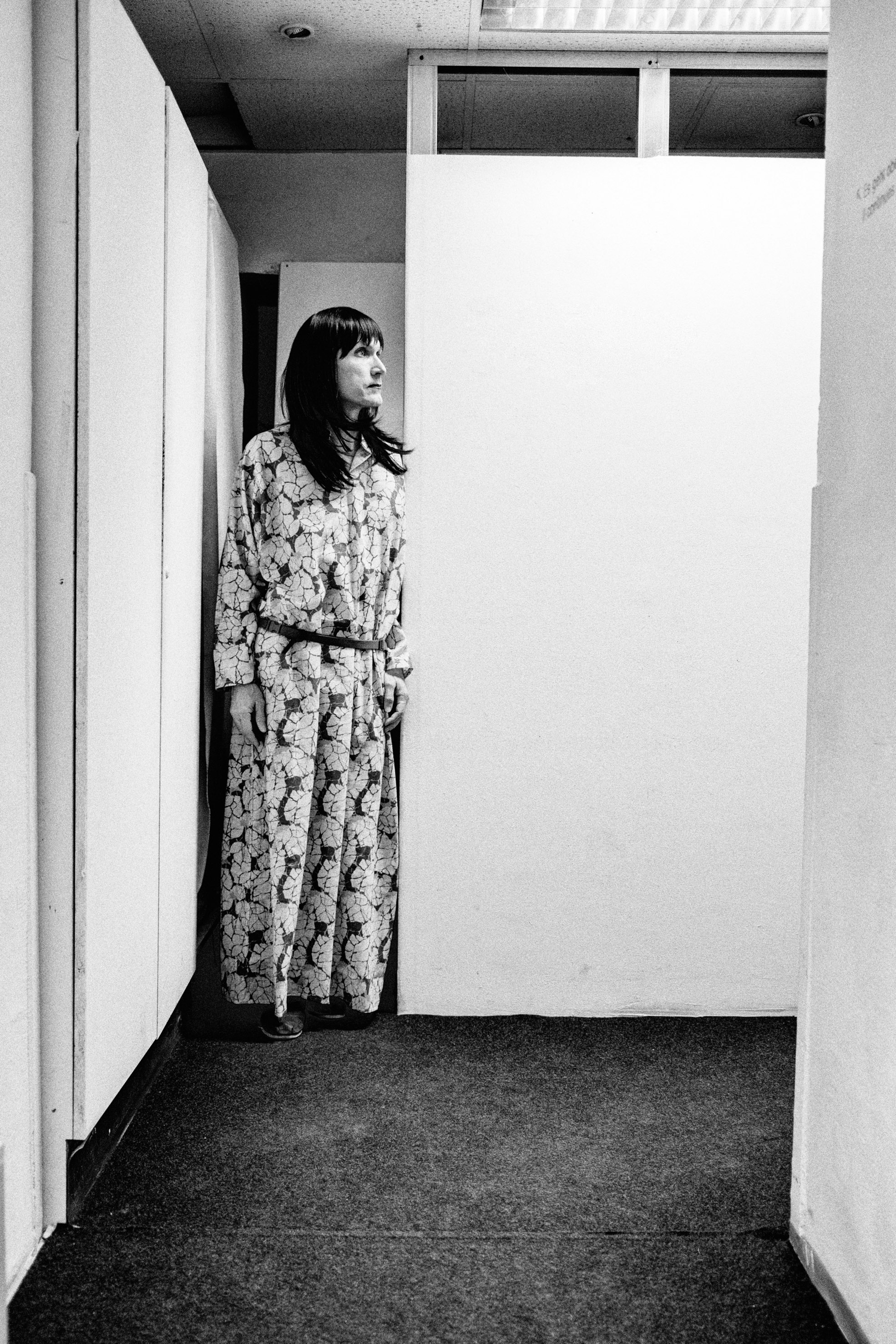
“it becomes this living system”
And when did you actually start Rrose?
So, I finished at Mills College in 2010. And then, for about a year, I was just making music. I was also working with some modular synth sounds from Bob Ostertag. He’s probably most known for his connection to the free improvisation scene. In the late ’70s, he was actually the first person to take a Serge modular synth onstage with free jazz musicians and try to improvise with them live. He had patch cables around his neck and everything.
Later, he did stuff with samplers and computer-based music. But around 2010, he returned to the modular synths. He knew Don Buchla, actually – the guy who developed the Buchla synthesizer and was deeply connected to the psychedelic scene in San Francisco.
So at the end of my time at Mills, Bob did a workshop there. We met and had some arguments about techno – he wasn’t into it. But we kept the dialogue going, and I kind of dared him to make pulse-based music with a rigid beat using the Buchla.
He sent me some tracks and said, “Is this techno?” And I said, “Not quite, but maybe I could remix it.” And that’s how it started. Working with his material became the seed for the project.
At first, I didn’t know I was starting something new. But at some point, I had this batch of music and thought, “Okay, this needs a new name, a new identity.” That’s when I realized it was going to be something different. The imagery and the concept all came afterward. But yeah, it began from that year of experimenting with Bob’s sounds.
It really feels like the whole thing began with a concept. I mean, you’re referencing Duchamp often – who’s a kind of godfather of conceptual art. So I’m curious about how your project expanded into this very holistic, almost microcosmic world. One really interesting part is the performative side: you’ve created this persona, and that takes it into a different realm. It becomes more mystical. The enigma of Rrose is really strong. But how does one even create an enigma on purpose?
Well, at the beginning, I made a very clear decision: I didn’t want to put information about my personal life out there. I just wanted to put the music out, appear as I do, and let that be the focus.
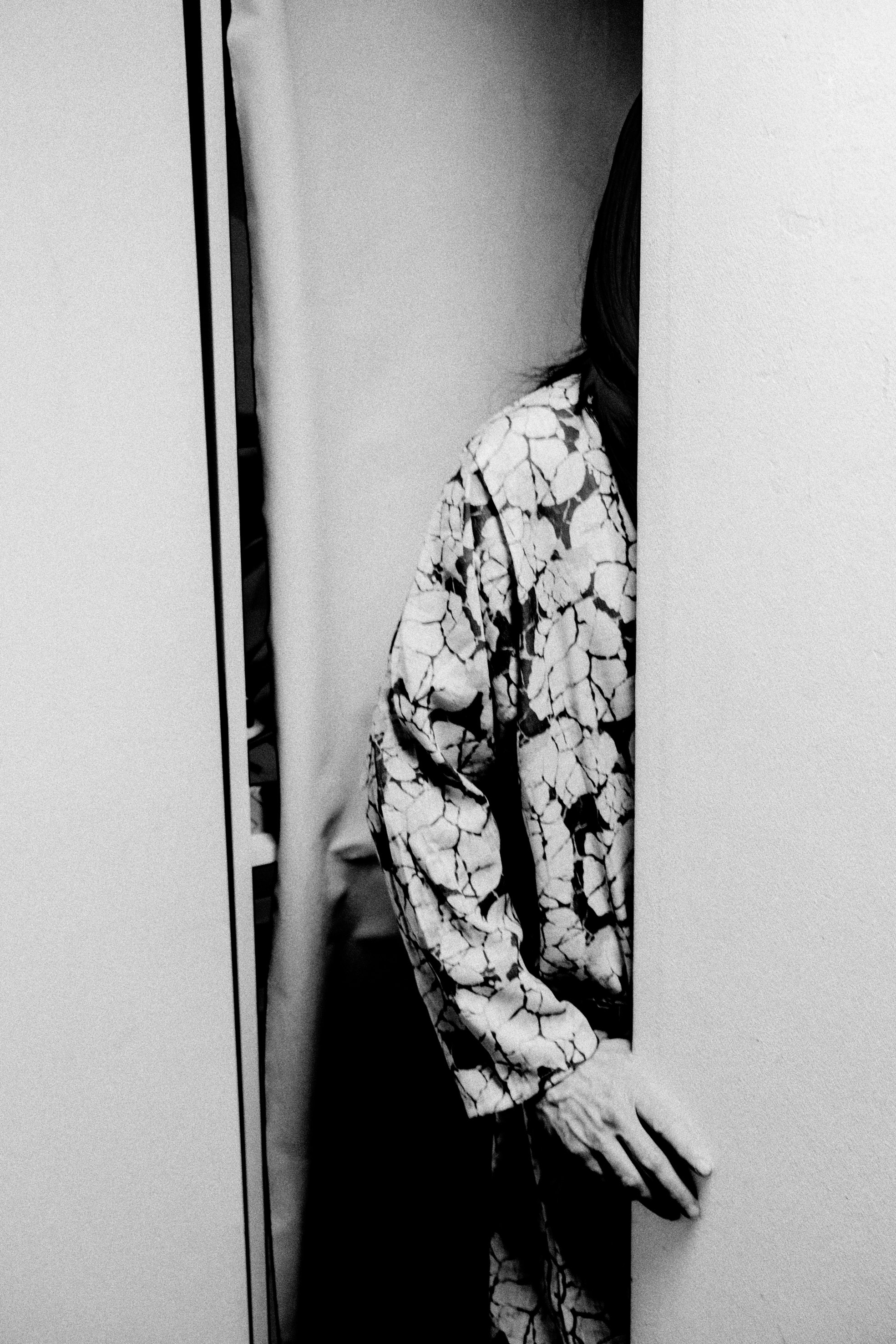
Was that already the case with Sutekh?
No, not at all. With Sutekh, I was totally open. That project had many different phases, but I was always happy to do interviews and talk about anything.
With Rrose, it was different. At first, I didn’t do interviews, and I didn’t put a bio online that linked it to anything from the past – even though it was still me. My intention wasn’t to create a mystery, per se – it was to direct people’s attention to the music and imagery first, not the person behind it.
Eventually, I did a short interview with Resident Advisor for their podcast, and in that, I said: anyone is welcome to contact me. I’ve never hidden my email address – it’s always been on my website. And in that interview, I said I’m not keeping secrets; I’m just asking people not to post about my personal info online. That way, new listeners can encounter the music first, before anything else.
Of course, you can’t control that completely. But I think just making that initial effort helped set a tone. And interestingly, even now – after years of interviews and even doing presentations from my studio – people still describe the project as mysterious.
So I guess I set something in motion that continues, even though I’m no longer cultivating it actively. Which is kind of nice.
I feel like the mystery is embedded in the sound itself too. I mean, there’s no easy explanation – it’s not something you can pin down – but there’s a sense that the sound contains the mystery.
Yeah, exactly. As long as the music and the imagery I’m putting out there still carry something that even I find mysterious, I think the project will always have that kind of aura.
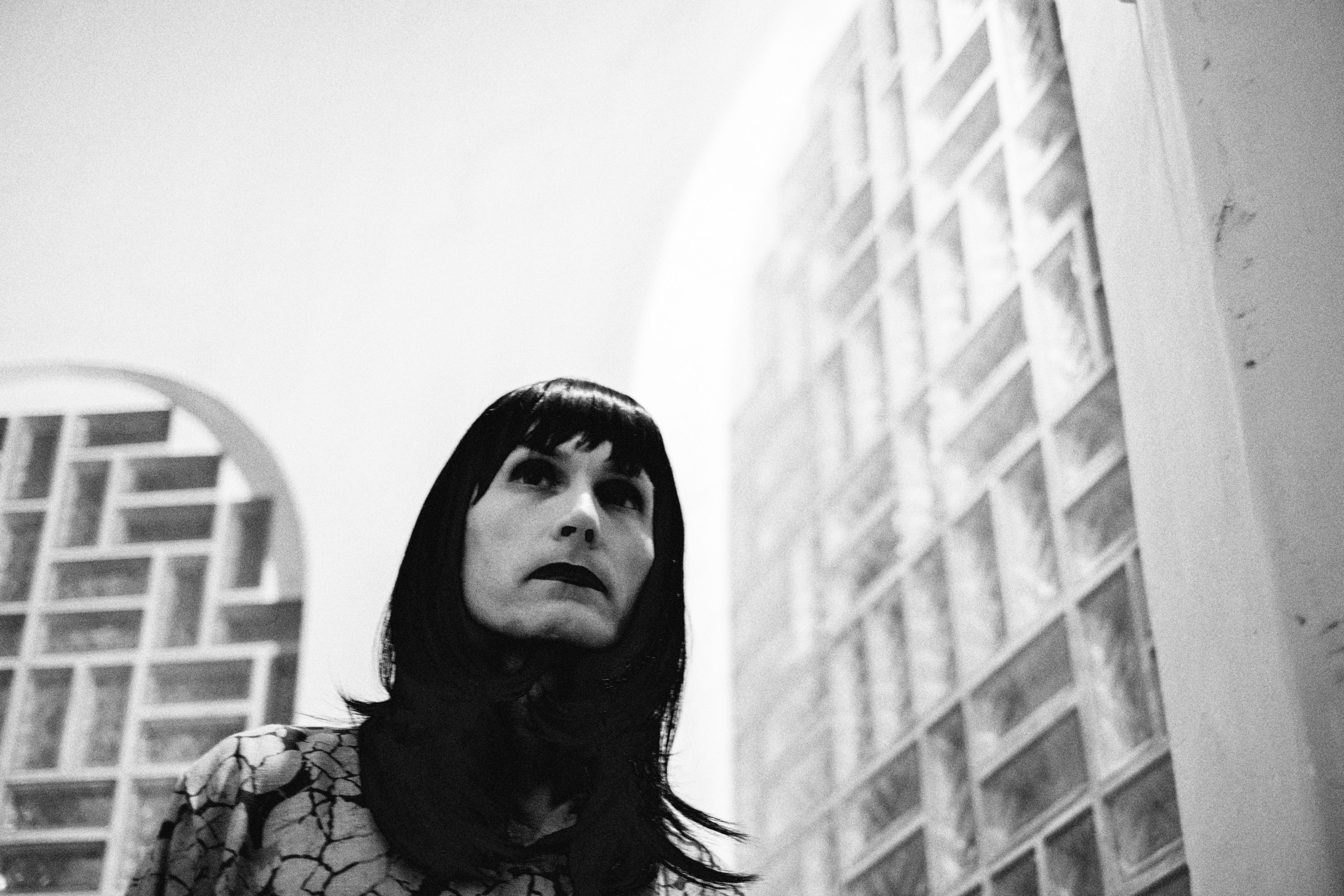
“to question your own perception, your own existence”
And then even your records reflect that. I mean, it’s not a basic techno record, even if you say you didn’t quit being a techno producer. There are multiple layers, different styles coming together, even if the aesthetics always lean towards minimalism. So I think there is a connection between techno, and the drone f.ex. The drone is such a primordial medium. There’s this long historical lineage of people working with drones – centuries back. I feel that what connects these two seemingly unrelated genres or styles is that they immerse the listener.
Well, I think it goes back to what we were talking about earlier – this idea of being in a state where you’re forced to question your own perception, your own existence even. I’ve always been interested in perception and consciousness, and sound – music – is such an intangible medium. That’s what fascinates me.
It’s this incredibly rich sensory input, but at the same time it’s so abstract. It’s not something you can hold or see. And unlike a painting or a sculpture, it disappears as soon as it happens.
So I think that makes it this really unique vehicle for exploring states of being that are hard to define. I don’t know why I’m drawn to that kind of state exactly – but I am. And immersion, for me, is one of the most effective ways of creating or reaching that space.
And it’s not just that – it also seems very conscious that you don’t use vocal samples much in your tracks. They’re highly abstract sounds.
Occasionally I’ll use something, but yeah – very rarely. And when I do, it’s usually something that’s barely there. Like a hint of a voice, or something processed so much it’s almost not recognizable anymore.
There are a few tracks that flirt with elements of genres like dancehall or dub or whatever, where it felt okay to allow just a trace of a vocal in – but even then, it’s minimal.
But then you have the titles, which are very evocative. They give a kind of emotional or conceptual anchor, especially since your sound is so abstract. And then on top of that, you’re also clearly interested in psychoacoustic effects and strategies. Do you approach those things deliberately? Or is it more experimentation-based?
It’s definitely more intuitive. I’m not a highly technical person. I don’t try to model psychoacoustic effects with equations or anything like that. I just know my tools well enough to find interesting areas through experimentation.
I want there to be unpredictability in the process. If everything is too tightly controlled, I lose interest. So even though I’m informed by psychoacoustics and those kinds of ideas, I approach them more through feel and response than through engineering.
So you’re not trying to reverse-engineer effects or use some heavy scientific method to achieve those sensations…
Exactly. It’s more like I’ve heard certain effects in other people’s music or in nature, and I remember the feeling they gave me. Then I try to find that feeling again – not by copying what was done technically, but by chasing that sensation through my own tools. And a lot of that comes down to listening.
“slowly, iteratively, listening deeply at each step”
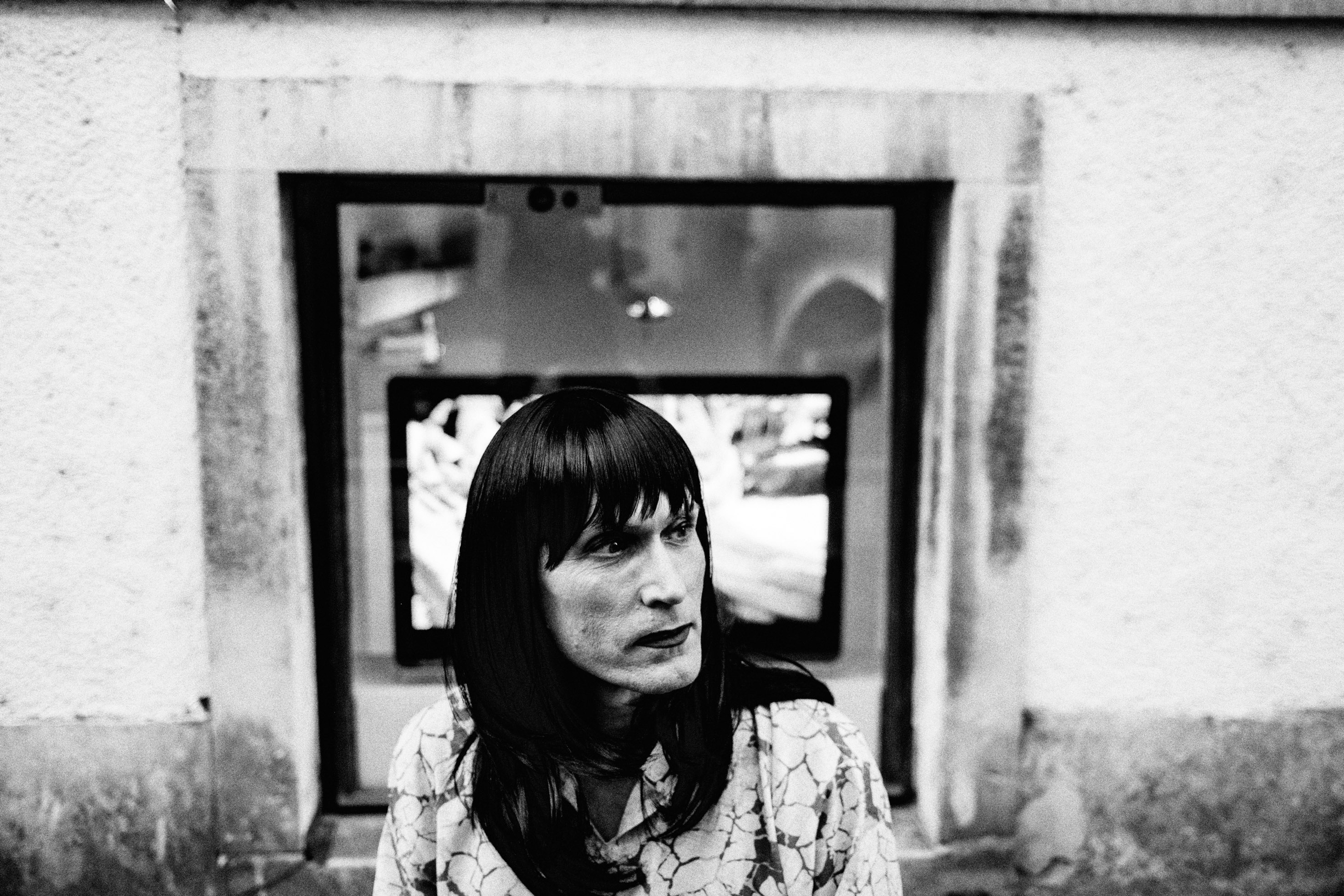
And what about your tools? Are you working mostly with software or hardware? You mentioned you’re not super technical.
It’s a mix. I’m most comfortable working with the computer – that’s where most of the process happens. I do use some hardware synths too, but very sparingly.
My studio setup is really minimal. It’s not one of those rooms full of blinking lights with everything synced up and running. I usually work with one piece of hardware at a time, maybe with some effects, and then I build the rest digitally.
It’s more like layers built over time than a big interconnected system. That fits better with how I like to work – slowly, iteratively, listening deeply at each step.
You mentioned earlier that you now play piano every day. When did that start? Did you grow up learning an instrument?
No, not at all. I didn’t have any formal music education as a kid. I didn’t play an instrument growing up. I was only a listener. I didn’t start learning an acoustic instrument until I turned 30, and that’s when I decided to study piano seriously.
And now you practice every day?
Yeah. Every day. It’s something I truly love. I mostly play classical – Bach, a couple of Mozart pieces I really enjoy, some Beethoven. I don’t love all of Mozart, honestly – some of it feels too fluffy – but there are pieces I connect with. Satie, of course, was one of the first things I learned. Also Moondog – do you know his music?
Yeah, I know of him. He has that really unique, mystical thing going on.
Right. I learned a lot of his piano pieces. They’re incredibly fun to play. There’s a great recording called The Last Concert, where he plays all his piano works. He was an amazing pianist and composed some really beautiful stuff.
And before all that – how were you musically “socialized,” let’s say, as a teenager? What were you listening to?
Well, it started early. When I was ten, I was listening to Michael Jackson and Duran Duran. Then it shifted to Prince. Then, as I became a teenager, I got into The Cure, The Smiths, Depeche Mode – that kind of stuff. Also the Pixies, Cocteau Twins, and other 4AD bands.
So quite a bit of post-punk, new wave, that whole lineage.
Exactly. That was the beginning. Then I started discovering college radio and that opened me up to a whole other world – crazy experimental music, stuff on the fringes. That’s when I left the more “indie band” stuff and really started to explore.
Where was this?
In Los Angeles first, but I moved to Berkeley for university. So I was in the Bay Area for quite a while.
What did you study? Was it something music-related?
No, actually. I studied cognitive science at UC Berkeley.
Wow. That makes sense in a way, given your interests in perception and sound.
Really, it was just an excuse to take a bunch of different classes I was curious about. I wasn’t studying with a particular job in mind. But during that time I was DJing at the college radio station (KALX), which was hugely formative.
So that became your real education in a way?
Definitely. Being part of that radio station shaped everything. That, and the early San Francisco rave scene in the ‘90s – those were the two big influences that I think still inform what I do today. It was a fusion of avant-garde experimental music and early techno culture. Over time, they kind of merged inside me.
Thanks much!
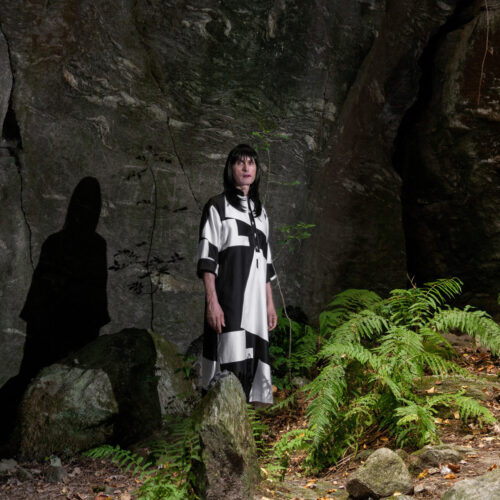
Rrose

This article is brought to you by Struma+Iodine as part of the EM GUIDE project – an initiative dedicated to empowering independent music magazines and strengthen the underground music scene in Europe. Read more about the project at emgui.de
Funded by the European Union. Views and opinions expressed are however those of the author(s) only and do not necessarily reflect those of the European Union or the European Education and Culture Executive Agency (EACEA). Neither the European Union nor EACEA can be held responsible for them.